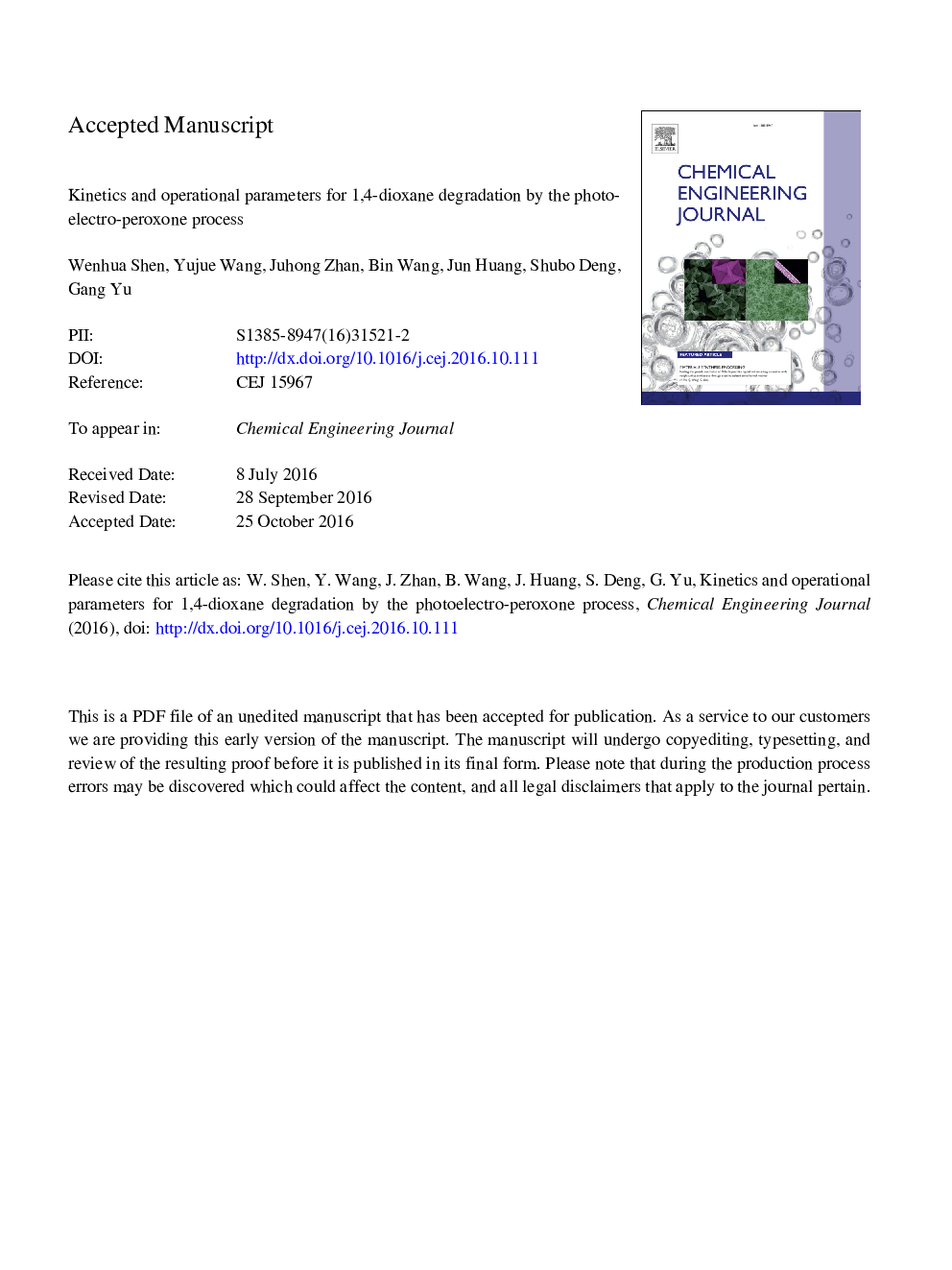| Article ID | Journal | Published Year | Pages | File Type |
|---|---|---|---|---|
| 4763567 | Chemical Engineering Journal | 2017 | 35 Pages |
Abstract
This study investigated the degradation of 1,4-dioxane by the photoelectro-peroxone (PEP) process, which combines conventional ozonation, UV photolysis, and electrochemical hydrogen peroxide (H2O2) generation to effectively produce hydroxyl radicals (OH) for advanced oxidation wastewater treatment. Results show that the combination of ozonation, ultraviolet (UV), and electro-generation of H2O2 could lead to significant synergistic effects that enhanced the pseudo-first order rate constant for 1,4-dioxane degradation to 33 times that of the simple linear addition of the three single processes. In addition, the PEP process could mineralize total organic carbon (TOC) from 1,4-dioxane solutions much faster than the three single processes, as well as their binary combinations (UV/O3 and the electro-peroxone (EP) process). After 45Â min of treatment, the UV/O3, EP, and PEP processes removed â¼70%, 37%, and 98% TOC with a specific energy consumption (SEC) of â¼0.38, 0.22, and 0.30Â kWÂ h/g TOCremoved, respectively. Increasing ozone (O3) dose, applied current, and solution pH increased generally the rate of TOC removal during the PEP process. When sodium chloride (NaCl) was used as the supporting electrolyte, chlorine (Cl2) and hypochlorous acid/hypochlorite (HClO/ClOâ, formed from anodic oxidation of Clâ) would react with H2O2, thus diminishing its synergistic effects with O3 and UV for pollutant degradation. Consequently, TOC removal was much less efficient when the PEP process was conducted in NaCl electrolytes than in sodium sulfate (Na2SO4) electrolytes, especially when using anodes (ruthenium and iridium oxide coated titanium, RuO2-IrO2/Ti) with higher chlorine evolution activity. These results indicate that careful optimizations of the operational parameters are critical to maximize the synergistic effects of the PEP process for pollutant degradation.
Related Topics
Physical Sciences and Engineering
Chemical Engineering
Chemical Engineering (General)
Authors
Wenhua Shen, Yujue Wang, Juhong Zhan, Bin Wang, Jun Huang, Shubo Deng, Gang Yu,
